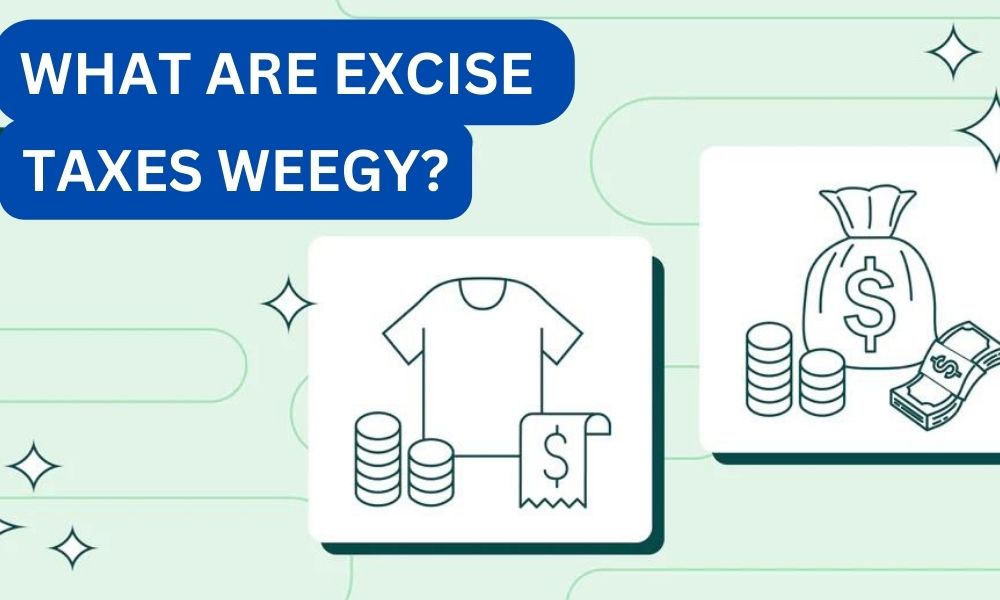Contents
What are Excise Taxes?
Excise taxes are a type of indirect tax imposed on specific goods and services by the government. Unlike direct taxes, such as income tax or property tax, which are levied on individuals or businesses, excise taxes are levied on the production, sale, or consumption of certain goods and services. These taxes are often included in the price of the product or service and are paid by the producer or seller, who then passes on the cost to the consumer.
History of Excise Taxes
The concept of excise taxes dates back centuries, with evidence of their existence in ancient civilizations such as Egypt, Rome, and China. In the United States, excise taxes have a long history, dating back to the colonial era. The first excise tax in the country was imposed on whiskey in 1791 to help fund the Revolutionary War debt. Since then, excise taxes have been used by governments around the world as a means to generate revenue and regulate certain industries.
Purpose of Excise Taxes
Excise taxes serve multiple purposes, including:
- Revenue Generation: One of the primary purposes of excise taxes is to generate revenue for the government. By levying taxes on specific goods and services, governments can collect substantial amounts of money to fund public services and infrastructure projects.
- Regulation: Excise taxes are often used as a regulatory tool to discourage the consumption of certain goods or services that are deemed harmful to individuals or society as a whole. For example, higher taxes on tobacco products aim to reduce smoking rates and improve public health.
- Behavior Modification: Excise taxes can also be used to influence consumer behavior. By making certain goods or services more expensive through taxation, governments can encourage individuals to make healthier or more environmentally friendly choices. For instance, higher taxes on gasoline can incentivize people to use public transportation or opt for fuel-efficient vehicles.
Types of Excise Taxes
Excise taxes can be categorized into various types based on the goods or services they target. Some common types of excise taxes include:
Read:What does it mean when your knee itches spiritually?- Alcohol Tax: Levied on the production or sale of alcoholic beverages, alcohol taxes vary depending on the type and alcohol content of the product. These taxes are often used to discourage excessive alcohol consumption and fund alcohol-related programs.
- Tobacco Tax: Imposed on the production or sale of tobacco products, tobacco taxes aim to reduce smoking rates and mitigate the health risks associated with tobacco use. These taxes can be substantial and are often increased periodically to further discourage smoking.
- Fuel Tax: Fuel taxes are imposed on gasoline, diesel, and other motor fuels. These taxes are used to fund transportation infrastructure projects and promote energy conservation by encouraging fuel-efficient vehicles and public transportation usage.
- Environmental Taxes: Governments may impose excise taxes on goods or services that have a negative impact on the environment. For example, taxes on plastic bags or carbon emissions aim to reduce pollution and promote sustainable practices.
- Luxury Tax: Luxury taxes are levied on high-end goods or services that are considered non-essential or extravagant. These taxes are often imposed on luxury cars, yachts, jewelry, and other luxury items.
Impact of Excise Taxes
Excise taxes can have both positive and negative impacts on individuals, businesses, and the economy as a whole. Some of the key impacts include:
Read:What is an all american cheerleader?- Revenue Generation: Excise taxes can provide a significant source of revenue for governments. This revenue can be used to fund public services, infrastructure projects, and social welfare programs.
- Price Increase: Excise taxes increase the cost of goods and services, which can directly impact consumers. For example, higher taxes on cigarettes lead to increased prices, making smoking less affordable for many individuals.
- Consumer Behavior: Excise taxes can influence consumer behavior by making certain goods or services more expensive. This can lead to reduced consumption of harmful products or increased demand for healthier alternatives.
- Industry Impact: Certain industries, such as tobacco or alcohol, are heavily affected by excise taxes. Higher taxes can lead to decreased sales and profitability for businesses operating in these sectors.
- Black Market: Excessive taxation can create incentives for the development of black markets, where individuals seek to avoid paying high taxes. This can lead to illegal activities and loss of tax revenue for the government.
Case Study: The Impact of Soda Taxes
Soda taxes have gained significant attention in recent years as a means to combat obesity and promote healthier lifestyles. One notable case study is the implementation of a soda tax in Mexico in 2014. The tax imposed a 10% levy on sugary drinks, aiming to reduce consumption and improve public health.
Read:What you need to know about aviation business dvcodes?The results of the soda tax in Mexico were promising. Studies showed that within the first year of implementation, the tax led to a 12% reduction in the purchase of sugary drinks. Additionally, lower-income households, who are often more affected by health issues related to excessive sugar consumption, experienced the greatest decline in consumption.
Furthermore, the tax generated substantial revenue for the Mexican government, which was used to fund public health programs and initiatives. The success of the soda tax in Mexico has inspired other countries and cities to consider similar measures to address the growing obesity epidemic.
Summary
Excise taxes are a form of indirect taxation imposed on specific goods and services. They serve multiple purposes, including revenue generation, regulation, and behavior modification. Excise taxes can target various products, such as alcohol, tobacco, fuel, and luxury items. While they can generate significant revenue for governments and promote positive changes in consumer behavior, they can also lead to price increases, industry impacts, and the development of black markets. Case studies, such as the soda tax in Mexico, demonstrate the potential effectiveness of excise taxes in reducing consumption and improving public health. Overall, excise taxes play a crucial role in shaping consumer choices, funding public services, and addressing societal issues.









